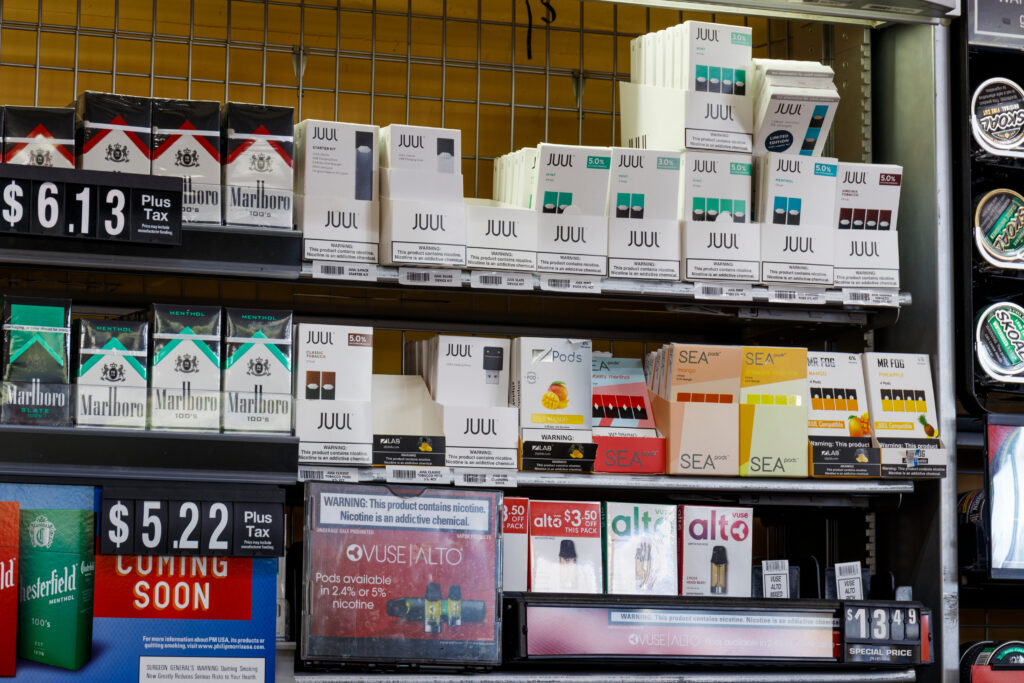
In late June, the Food and Drug Administration took a number of controversial steps to decrease access to products that contain high levels of nicotine. One of strictest measures was banning the sale of Juul e-cigarettes and Juul pods in the United States. The Juul e-cigarette has contributed significantly to increased use of tobacco products by teenagers across the country.
In addition to the Juul ban, the FDA has announced a plan to develop a product standard that allows for a maximum level of nicotine in combustible cigarettes. This would be done in order to decrease the addictiveness of cigarettes in hopes of making them easier for people to quit after extended use. The action is set to go into effect in May of 2023.
Teens and Young Adults Are the Priority
Both of these measures aim to decrease the likelihood of young people starting and then becoming addicted to smoking combustible cigarettes or vaping for longer periods of time. 87% of adult smokers start before the age of 18, and many people who attempt to quit after extended use often have a difficult time doing so. The FDA’s hope is that lower levels of nicotine in combustible cigarettes will make them less addictive and easier for people to put down when they wish to do so.
The Juul brand has said the product was not being marketed to teenagers directly, but the “high-tech” design, colorful products, and flavored pods makes the unique e-cigarette popular among young people. The FDA cited not having enough knowledge about the harmful long term effects of the Juul e-cigarette as reason for its ban, however no other e-cigarettes have been ordered off the market.
Is Banning Juul Really a Solution?
Nicotine is what makes smoking and vaping addictive, however it is the toxins in combustible products that make smoking deadly, not to mention a significant and expensive burden on the American healthcare system. Vaping, particularly the use of Juul, is still not safe, but it is less harmful than smoking combustible cigarettes. From a harm reduction point of view, e-cigarette options may be thought of as a way to improve public health.
Now that there are many young people addicted to nicotine from using Juul or other forms of vaping, what happens when they no longer have access to those products? It’s reasonable to wonder if they’ll turn to combustible tobacco products in order to get nicotine. That may be an unanticipated consequence with a high price. And many people who wish to stop smoking combustible cigarettes will often switch to items like Juul or other vapes for a less toxic option. Is limiting this access going to improve or worsen health outcomes?
Unfortunately, when it comes to cigarettes, vaping, and other tobacco products, it’s hard to say what is the right answer. Time has shown us that completely doing away with a substance or product will not prevent people from seeking it out in a different capacity. It’s best to give people options and accurate, easy-to-understand information so that they are able to make an informed decision for what is best for their own health.





